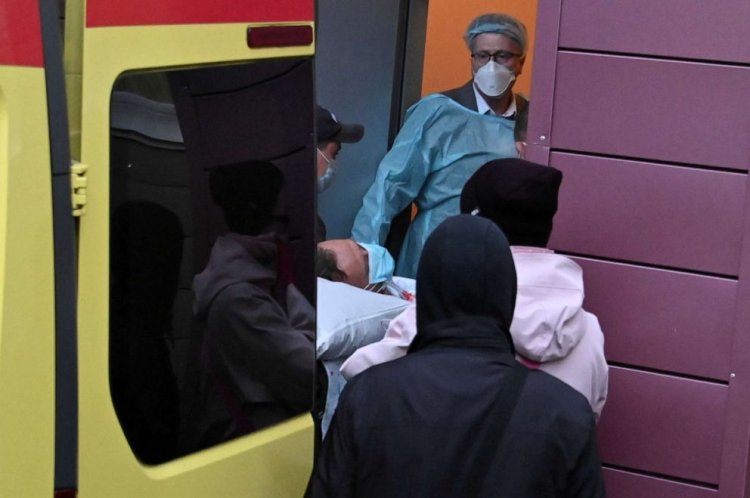Russia’s Navalny Now Out Of Coma After Being Poisoned

Brussels: Doctors treating Russian opposition figure Alexei Navalny say he is out of an induced coma and his condition, since being poisoned, has improved.
He is responding to verbal stimuli, they said. Mr Navalny, 44, was flown to Germany after falling ill on a flight in Siberia in August.
His team allege he was poisoned on the orders of Russian President Vladimir Putin, who denies any involvement.
German doctors say the Putin critic was poisoned with a Novichok nerve agent.
On Monday, the Charité hospital in Berlin said in a statement that Mr Navalny was being weaned off mechanical ventilation.
"He is responding to verbal stimuli. It remains too early to gauge the potential long-term effects of his severe poisoning," it said.
It also said doctors were in close contact with Mr Navalny's wife.
Mr Navalny's spokeswoman, Kira Yarmysh, tweeted: "News about Alexei. Today he was taken out of induced coma. Gradually he will be switched off from a ventilator. He responds to speech and to being addressed to."
Mr Navalny is an anti-corruption campaigner who in recent years has become the most prominent opposition politician in Putin's Russia.
Last week, doctors in Germany said the results of toxicology tests carried out at a military laboratory gave "unequivocal proof" that Mr Navalny was poisoned with a Novichok nerve agent.
Doctors in Omsk insisted that no poisonous substances had been detected in Mr Navalny's body when he was under their care.
On Monday, the Kremlin said it was "absurd" to blame Russia for Mr Navalny's poisoning. "Attempts to somehow associate Russia with what happened are unacceptable to us, they are absurd," Mr Putin's spokesman, Dmitry Peskov, said.
A Novichok nerve agent was used to poison former Russian spy Sergei Skripal and his daughter in the UK in 2018. A UK investigation blamed the Russian state.
A spokesman for the German government said on Monday that it was too early to make a decision about Nord Stream. He said that Russia had "serious questions" to answer but that a response could not be expected in "three to four days".
The project must be completed despite current "difficulties", said Russian Energy Minister Alexander Novak according to Interfax news agency.
The European Union has demanded a "transparent" investigation by the Russian government.
US President Donald Trump has refused to condemn Russia saying the case was "tragic" but he has not seen proof of Mr Putin's involvement.
When asked on Monday about the Nord Stream 2 pipeline, Mr Trump re-iterated US opposition to the gas project.
There have been a number of previous attacks on high-profile critics or opponents of President Putin, including politicians, intelligence officers and journalists. The Kremlin has always denied involvement.















































